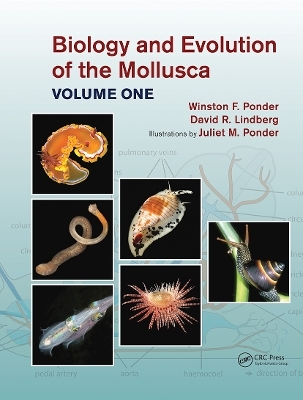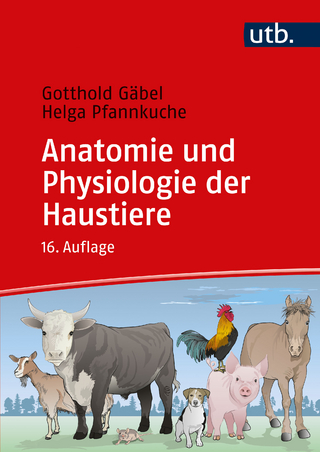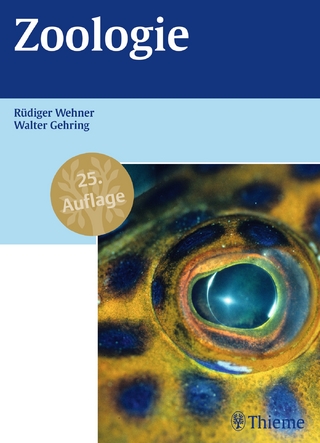
Biology and Evolution of the Mollusca, Volume 1
Crc Press Inc (Verlag)
978-0-8153-6169-5 (ISBN)
Molluscs comprise the second largest phylum of animals (after arthropods), occurring in virtually all habitats. Some are commercially important, a few are pests and some carry diseases, while many non-marine molluscs are threatened by human impacts which have resulted in more extinctions than all tetrapod vertebrates combined. This book and its companion volume provide the first comprehensive account of the Mollusca in decades. Illustrated with hundreds of colour figures, it reviews molluscan biology, genomics, anatomy, physiology, fossil history, phylogeny and classification. This volume includes general chapters drawn from extensive and diverse literature on the anatomy and physiology of their structure, movement, reproduction, feeding, digestion, excretion, respiration, nervous system and sense organs. Other chapters review the natural history (including ecology) of molluscs, their interactions with humans, and assess research on the group.
Key features of both volumes:
up to date treatment with an extensive bibliography;
thoroughly examines the current understanding of molluscan anatomy, physiology and development;
reviews fossil history and phylogenetics;
overviews ecology and economic values; and
summarises research activity and suggests future directions for investigation.
Winston F Ponder was a Principal Research Scientist at The Australian Museum in Sydney where he is currently a Research Fellow. He has published extensively over the last 55 years on the systematics, evolution, biology and conservation of marine and freshwater molluscs, as well as supervised post graduate students and run university courses.
David R. Lindberg is former Chair of the Department of Integrative Biology, Director of the Museum of Paleontology, and Chair of the Berkeley Natural History Museums, all at the University of California. He has conducted research on the evolutionary history of marine organisms and their habitats on the rocky shores of the Pacific Rim for more than 40 years.
The numerous elegant and interpretive illustrations were produced by Juliet Ponder.
Winston F. Ponder (Ph.D, D.Sc, FRZSNSW) was educated in New Zealand, and employed as a curator at the Australian Museum in 1968, where he was a Principal Research Scientist in 1980 to his retirement in 2005. He has held honorary appointments at several universities through co-supervision of post graduate students and running courses on systematics and on Mollusca. He is currently a Senior Research Fellow of the Australian Museum. He has been actively involved with several societies, in particular, the Malacological Society of Australasia, and edited their journal, Molluscan Research, for 13 years (until last Dec.). He has served on several committees, including the Australian Biological Resources Survey (ABRS) Advisory Committee for six years. His research interests centre on molluscan morphology, systematics, and phylogenetics, especially of gastropods. He has also been involved in the conservation of invertebrates, and his recent research is focused on the biology and systematics of freshwater and estuarine molluscs of Australia and the region as well as the aquatic invertebrate fauna of springs associated with the Australian Great Artesian Basin. He co-edited a book on the phylogeny of molluscs with D. Lindberg (2008) and has edited three other books and, to date, is the author of 247 reviewed publications. He is also involved in the production of interactive keys to marine and freshwater molluscs. David R. Lindberg is Professor Emeritus of Integrative Biology, Curator Emeritus in the UC Museum of Paleontology, and a former member of the Center for Computational Biology at UC Berkeley. He is a former Chair of the Department of Integrative Biology, Director of the UC Museum of Paleontology, and Chair of the UC Berkeley Natural History Museums. He has authored over 125 peer-reviewed papers and edited or authored 3 books on the evolutionary history of nearshore marine organisms and their habitats. At Berkeley, he served as major advisor to 21 Ph.D graduate students and 6 post-doctoral researchers. In addition to providing graduate seminars in evolution and organismal biology, he regularly taught a marine mammal course, an invertebrate zoology course with laboratories, and 2 semester principals of phylogenetics course. Prof. Lindberg has conducted research and fieldwork along the rocky shores of the Pacific Rim for over 40 years. In addition to his research and teaching, Prof. Lindberg was actively involved in K・16 outreach projects at the UC Museum of Paleontology, and focused on the use of the Internet to increase access to scientific resources, and the training of teachers in principles of evolutionary biology, science, and global change.
Volume 1
Foreword
Acknowledgements
About the Authors
Chapter 1 - Introducing Molluscs
Chapter 2 - Overview of Molluscan Physiology and Genomics
Chapter 3 - Shell, Body, and Muscles
Chapter 4 - The Mantle Cavity and Respiration
Chapter 5 - Feeding and Digestion
Chapter 6 - Circulatory and Excretory Systems
Chapter 7 - Nervous System, Sense Organs, Learning and Behaviour
Chapter 8 - Reproduction and Development
Chapter 9 - Natural History and Ecology
Chapter 10 - Molluscs and Humans
Chapter 11 - Research on Molluscs – Some Historical, Present, and Future Directions
Appendix
References
Index
| Erscheinungsdatum | 23.07.2019 |
|---|---|
| Zusatzinfo | 43 Tables, black and white; 303 Illustrations, color; 18 Illustrations, black and white |
| Verlagsort | Bosa Roca |
| Sprache | englisch |
| Maße | 216 x 280 mm |
| Gewicht | 3284 g |
| Themenwelt | Naturwissenschaften ► Biologie ► Zoologie |
| Naturwissenschaften ► Geowissenschaften ► Mineralogie / Paläontologie | |
| Weitere Fachgebiete ► Land- / Forstwirtschaft / Fischerei | |
| ISBN-10 | 0-8153-6169-6 / 0815361696 |
| ISBN-13 | 978-0-8153-6169-5 / 9780815361695 |
| Zustand | Neuware |
| Haben Sie eine Frage zum Produkt? |
aus dem Bereich


